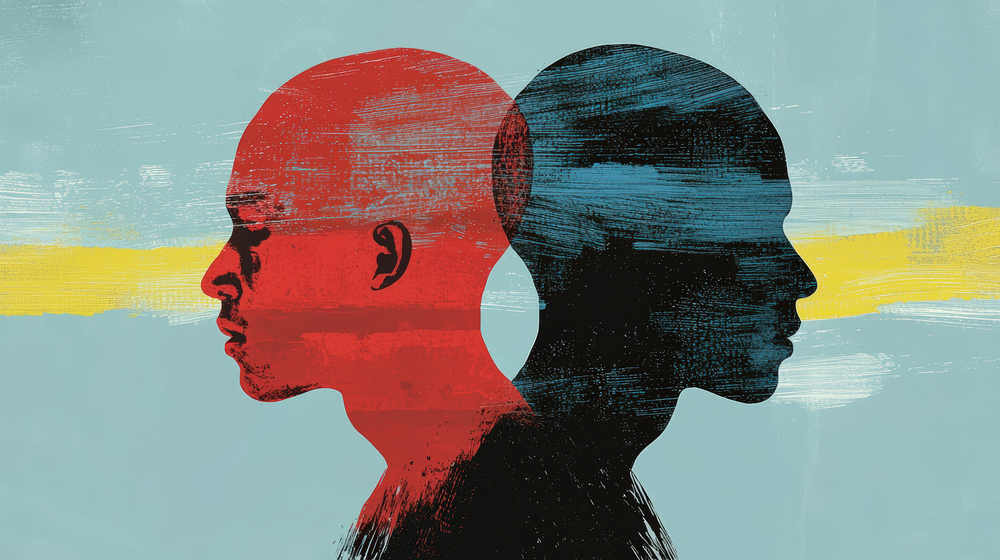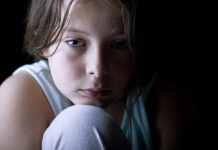A new article published in Child and Adolescent Psychiatry and Mental Health finds that adverse childhood experiences (ACEs) are common in Kenya, Indonesia, and Vietnam.
The research, led by Yohannes Dibaba Wado from the African Population and Health Research Center, additionally finds that ACEs are associated with adolescents’ mental health issues in all three countries. This was especially true for adolescents who reported four or more ACEs.
The authors write:
“Overall, the findings of the current study demonstrate that ACEs are common among adolescents in Kenya, Indonesia, and Vietnam, albeit with significant differences in prevalence between all three countries. Further, these findings show that despite differences in prevalence, ACEs are associated with increased odds of mental disorders in all three countries. As such, prevention or minimization of the number of ACEs experienced by an individual may be an effective approach for reducing the risk of mental disorders in adolescence.”
















“Childhood trauma is a global mental health crisis, researchers warn” – so much irony in this statement. First of all we are calling childhood trauma itself a mental health crisis. It isn’t obviously – trauma is the mark of an injury, so to imply their mind has an illness is absurd, unless an animal is mentally ill when it’s been traumatised through abuse. Secondly you call childhood trauma a global mental health phenomena, which if it is then it is a ubiquitous fact of life in modern global existence rather then some kind of pathology as implied by the notion of mental illness so why do you and they keep pathologizing a rising tide of global and social childhood suffering? My goodness, this and the last research article on childhood medicating being chosen over therapy are such a slide from the salient and important long-term outcome studies and cross-cultural studies that Robert Whitaker drew on and listed in his book called Mad In America. Now you’re retreating right back into your trenches because of all the hostile fire and are throwing out nothing burgers instead. You are merely psychiatric commentary in these two articles – you could be writing some student psychiatry magazine at some psychiatric department and University for trainee psychiatrists to read. Can’t wait till the next research article. I’m write my response in advance. “Bucket! Quick! I’m gonna be sick! Oh too late, stop: grab a mop.”
Report comment
Maybe in four years we’ll get an article like “Researchers Discover Calling Suffering People ‘Mentally Ill’ Worsens Mental Health Symptoms”.
And then the article will be a still-practicing psychologist going “us clinicians should take this into consideration when dealing with the mentally ill, that part of their illness is clearly an allergic reaction to the stigma around mental health, which we should fight by doubling down even harder on the biomedical model.”
Cruelty and capitalism and child abuse are certainly the only real epidemics here. Glad to see others get really bothered by the framing of “mental illness” when the only thing wrong with a person is the environment, and the “illness” is literally just the manifestation of defense mechanisms. Like at that point, it just means you have a working soul, which is like the opposite of illness.
Report comment
Dead Soul: “the only thing wrong with a person is the environment, and the “illness” is literally just the manifestation of defense mechanisms.” Great insight! Not opinion, but true insight. And as you say, it “just means you have a working soul, which is like the opposite of illness” – exactly, but then the psychiatrist comes along and somehow like an alchimist manages to turn into into an illness and reap a comfortable living out of it. We used to have horror stories about vampires drinking our blood at night but when psychiatrists profit out of the destructions of our brains and those of our children we call that a public service! No Dead Soul, I see you have grasped the truth behind this all, and it’s nice to see.
Report comment
I think perhaps since civilization began children have been seen as chattel and tools. The American school system is based on the old agrarian need for labor during the summer and harvest periods.
Many global communities have been haunted literally and figuratively by colonism and violence. So rubber plantations, rice plantations, mineral mining of all kinds, human trafficking, and outsourcing of money.
Joseph Conrad writing in his second language did not describe the children in his novella Heart of Darkness. Most literary did not though Elizabeth Barrett Browning did write one poem of protest when living in Italy. Toni Morrison did in her novel Beloved.Louise Erditch as written as well. But it the concept of honoring children small rises and then always the deep falls. The names of folks who did try to research, learn , help lost in the archives.
And even in elite families daughters were used as pawns for power and control and third sons sent off to religious institutions for again power and control purposes.
Abuse and neglect rampant. And then the children are blamed or grow up as we are seeing now so full of moral injury they become moral injury themselves.
Report comment
Thank you for stating what other commenters forgot. Trauma has been with us forever. It didn’t start with capitalism and it won’t end with it. I’m tired of everything being blamed on an economic system when it’s in our very being to react certain ways to certain situations.
Report comment
Thanks but I am more socialist than not but business has been here forever as well. The Code of Hammurabi . But yes so much more than economics . And we need a multilevel layered framework that shows it all. I Coukd go on for several pages on this topic
Report comment
Mary, you write: “I think perhaps since civilization began children have been seen as chattel and tools. The American school system is based on the old agrarian need for labor during the summer and harvest periods.
Many global communities have been haunted literally and figuratively by colonism and violence. So rubber plantations, rice plantations, mineral mining of all kinds, human trafficking, and outsourcing of money.”
I think all this is a highly relevant pre-history to the problems we are facing with the treatment of children in the classroom and in the psychiatrists office I quite agree, but also it’s a relevant prehistory to so many of our problems – the problems of racism, of the general economic oppression and immiseration of workers and families, as well as the national exceptionalism and sense of national supremacy that has formed the backbone of the creeping fascism and white nationalism that is sweeping the world. It’s good to think of our problems in this kind of historical perspective as well as globally, because they are all tied to what you say.
Report comment
Perhaps it’d be a good idea to start arresting the child abusers, instead of having the “mental health professionals” neurotoxic poisoning the child abuse survivors, and their legitimately concerned mothers?
Report comment
Well said! Childhood trauma is not the “crisis,” childhood ABUSE AND NEGLECT is the crisis! We need to stop “treating” the victims and start intervening with the perpetrators to stop the traumatization from spreading!!!
Report comment
Yes. I and others 1980’s tried that after working with child abuse survivors because we saw at least partially the problem. In order to stop offenders one had to know the world they live in. It ain’t pretty and chock full of thinking errors and some would say addictive behaviors as well.. As I said before moral injury and the moral injury was subsumed instead of rejected.
Report comment
Thanks Zeroxox. It needs a timeline and pages of a multilayered framework that shows people and geography and history among other things.
Report comment
This is almost so bizarre I don’t know if I’m adding to it, just to respond at all.
“Mental illness” PLEASE define that, because it doesn’t seem to be people going on about something they observe in another, while so totally “immune” to what’s going on that it is relegated to an observation. Or the other can say they were abused, and thus this is put into this category or an illness that really doesn’t exist, unless you want to say that say a scar is a disease, only you are going on about behavior that comes from trauma. WHAT EXACTLY does this do to call it a “disease” and WHAT does it do to people to hear “you have a DISEASE,” other than it causes roadblocks from anything really being done!? I think that scabs heal, when seen for what they are, same as ALL OF THE CRITERIA probably used to call this a “disease” going on.
It’s ALSO clear that the penal system isn’t changing things, so if you are going to go on about trauma, try to recognize that in the people called perpetrators, so that THEY don’t become perpetrators, so they have an outlet other than such sad behavior. Or telling traumatized people that if they had the right to traumatize their perpetrators, that then everything would be fine, which clearly doesn’t work. It requires a bit more perspective, I think.
Report comment
I quite agree with what you are trying to express here, and you are doing so in a world hostile to the idea of mental illness being more like a scar or injury then a disease. I like the way you are struggling to express a subtle insight through our inadequate language, but eventually you’ll hit the jackpot and start breathing out a living fire that burns all flags away, leaving only the charred corpses still clutching them. And they will call you Armageddon.
Report comment
Sorry, but I’m not at all interested in any “Armageddon,” which is listed as some last war between good and evil. Good is simply good, same as power is power, it’s what remains, and it doesn’t need anything opposing it in a war. What I was talking about was that if the world would be interested in trauma, and the expression of trauma for what it is, as something that needs to be acknowledged and understood, that in a much larger scale it would change things. It’s not just “mental illness” that’s a symptom of trauma, it’s everything the world tries to change using more trauma, as if wars, a penal system, a monetary system, educations using grades, religions going on about hell or rewards called “Heaven,” social systems based on adaptation to beliefs rather than reality and the rest of it; as if all of that will ever solve anything but causing more of the same, adding fuel to the flames. No “Armageddon” with me breathing a living fired leaving charred corpses, as if “God” is doing such to anyone is ever going to happen or change anything would it. What I was typing about is understanding trauma, rather than using it as a means of population control using the penal system, social codes, money, grades in school, religion and the rest. What I was talking about was what Buddha referred to as compassion, what Jesus referred to as forgiveness, what art expresses in how it shows that all of life, in the end, what’s left over is the beauty that remains (go to a museum, read a classic novel, listen to music that has survived the ages etc. poetry plays dance). Sorry, I’m in no way breathing fire and reducing anyone to charred corpses. Would people understand trauma, they would be interested in the individuality they had missed expressing that something isn’t working for that person, for that part of the Universe, for that entity that God created, and they’d listen and have the courage to encounter new insight, and that would happen before anyone encountered such abandonment of who they are, or the consequent break down from what’s labeled as “discipline” USING trauma in the name of justice. Because when that’s missing you get all of the war mongers, the criminals, the corrupt business men, politicians, religious maniacs etc. And all of the people policing such, having been trained to exploit trauma for mind control, desiring leaving anyone not adhering to such as a charred corpse; no instead people could be people to begin with, with their individuality and their unique experiences, insight and contributions. If I was trying to make a point, and found I could spout living fire with my words and leave those not agreeing with me as charred corpses still clutching beliefs they couldn’t let go of, I would certainly think I’d completely failed to really communicate anything. Such an “accomplishment” doesn’t mean that I had “won”and that’s power, it means I’d lost and thinking I had won added more of what causes the problem to begin with. That would mean I wanted to be able to traumatize them rather than understand trauma and know how to respond in order to tend to that. There is a lot in life that points exactly that out, but you have to see that rather than dismiss it as being unrealistic.
Report comment